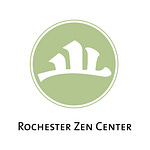John Pulleyn | November 25, 2023 | 52 minutes
Introduction
Today is Saturday, November 25, 2023.
This morning’s teisho is on the Precepts, ahead of this afternoon’s ceremony at 5:00 p.m. in the Buddha Hall.
In Buddhism, there are three foundations of Zen training:
Śīla (discipline or morality)
Samādhi (absorption or concentration)
Prajñā (wisdom)
Śīla is what we commit to when we take the precepts: discipline, care for others, and freeing ourselves from self-centered delusion—whether we exalt or despise ourselves.
Samādhi is concentration: forgetting our sense of separation.
Prajñā is direct seeing into the emptiness of the self.
These three—ethics, concentration, and wisdom—are both the seed and the fruit of practice.
The Buddha said:
“From morality comes wisdom, and from wisdom comes morality—like washing one hand with the other.”
The Spirit of the Precepts
Unlike rigid commandments, Zen precepts describe how an awakened being behaves.
We start small.
Our aspiration may be great, but our understanding grows slowly.
Dōgen Zenji said:
“There is no beginning to practice, nor end to enlightenment.”
Traveling Light
Living a life of care for others—of moral conduct—helps us travel light.
It removes the burdens that obstruct the mind’s stillness.
I once heard at an AA meeting:
“I’m honest because I like to travel light.”
True commitment brings real freedom.
When I first took the precepts, I felt washed clean.
Of course, I still violated them afterward—and will again. That’s part of the path.
The Limits of Rule-Keeping
In ancient China, many Zen masters began their practice in the Vinaya School—focused on memorizing countless monastic rules.
But following rules alone still left them short of real awakening.
That strict foundation, however, helped them eventually travel light when they entered Zen.
Seeing Where We Cause Harm
The precepts help us see where attachment to self causes harm.
Even just refraining from violating them minimizes harm and fosters awakening.
They are not simply “don’t do this, don’t do that”—they are a positive vision of awakened living.
Example:
First precept: Not to kill → Cherish all life.
In Bodhidharma’s version:
"In the intrinsically pure Dharma, not allowing the mind to become dark through ignorance is called the precept of refraining from intoxicants."
The Danger of Pretending
There’s a danger in thinking we’ve fully transcended selfishness before we actually have.
I once said something self-effacing around Roshi, and he responded:
“Look who’s nothing.”
True humility comes naturally. If you think you’ve reached the high bar—you haven’t.
Renunciation vs. Understanding
Many people approach precepts through renunciation—frontal assault.
Sometimes that works.
For instance, I quit smoking through sheer will.
But often, renunciation creates attachment.
Anthony de Mello said:
“When you renounce something, you're tied to it forever.”
Fighting an urge gives it power.
Real freedom comes not through renunciation but through seeing through the illusion—understanding its real value.
When you understand, the craving drops away naturally.
Pride and Moral Superiority
Even good deeds can inflate pride.
De Mello again:
“Everything we do is tainted with self-interest—refined or coarse.”
Self-righteousness blinds us.
People with “better tastes”—those proud of their sacrifices—can be more dangerous than openly selfish people.
If practice brings anything, it must bring humility and openness.
We're all flawed—and all perfect.
Precepts Ceremony Overview
1. Repentance
We begin by repenting harmful actions—acknowledging our shadow side.
As Thoreau said:
“Make the most of your regrets.
To regret deeply is to live afresh.”
2. Taking Refuge
We affirm our refuge in:
Buddha
Dharma
Sangha
3. General Resolutions
We resolve to:
Do no harm
Do good
Liberate all beings
Brief Walkthrough of the Ten Precepts
Not to kill, but to cherish all life.
Even pests may sometimes need to be killed—but without hatred.Not to take what is not given, but to respect things of others.
Stealing credit in conversation counts too.Not to misuse sexuality, but to be caring and responsible.
Respect human dignity; avoid objectification.Not to lie, but to speak the truth.
Brutal honesty isn’t the goal—compassionate truthfulness is.Not to abuse alcohol or drugs, but to keep the mind clear.
Travel light. As Richard Feynman realized: if something subtly pulls you, it already has too much power.Not to speak of others’ faults, but to be understanding and sympathetic.
See your own errors first.Not to praise oneself and disparage others, but to overcome your own shortcomings.
Minding your own business is profound practice.Not to withhold spiritual or material aid, but to give freely where needed.
Little acts of kindness matter enormously.Not to indulge in anger, but to practice forbearance.
It’s not about justification—it’s about awareness.Not to revile the Three Treasures, but to cherish and uphold them.
Respect your own Buddha-nature, and the teachings that support it.
Closing
If Zen practice teaches us anything, it’s this:
Humility over pride.
Openness over certainty.
Service over self-importance.
Let's stop now and recite the Four Vows.
Quick Takeaways
Precepts aren't rules—they're descriptions of awakened living.
Commitment frees us, but pride binds us.
Real transformation comes through understanding, not renunciation.
Self-interest never fully leaves—but humility can make it harmless.
Our practice must deepen our compassion, not our self-righteousness.











